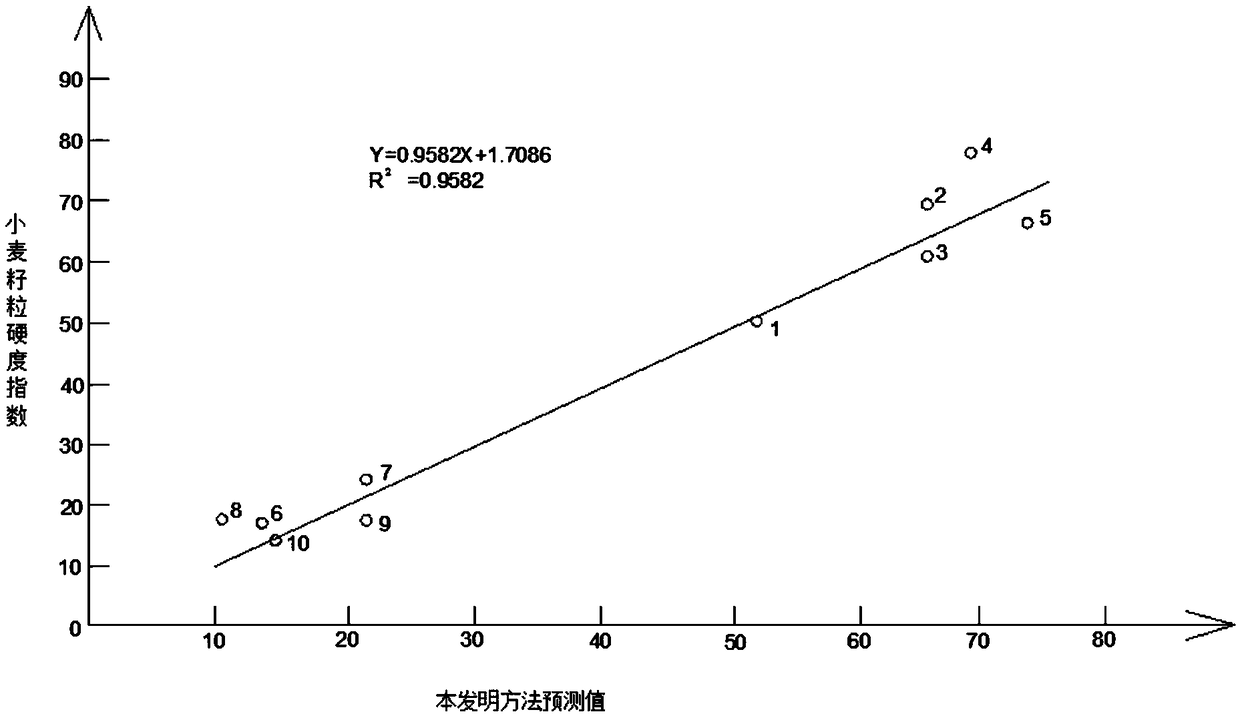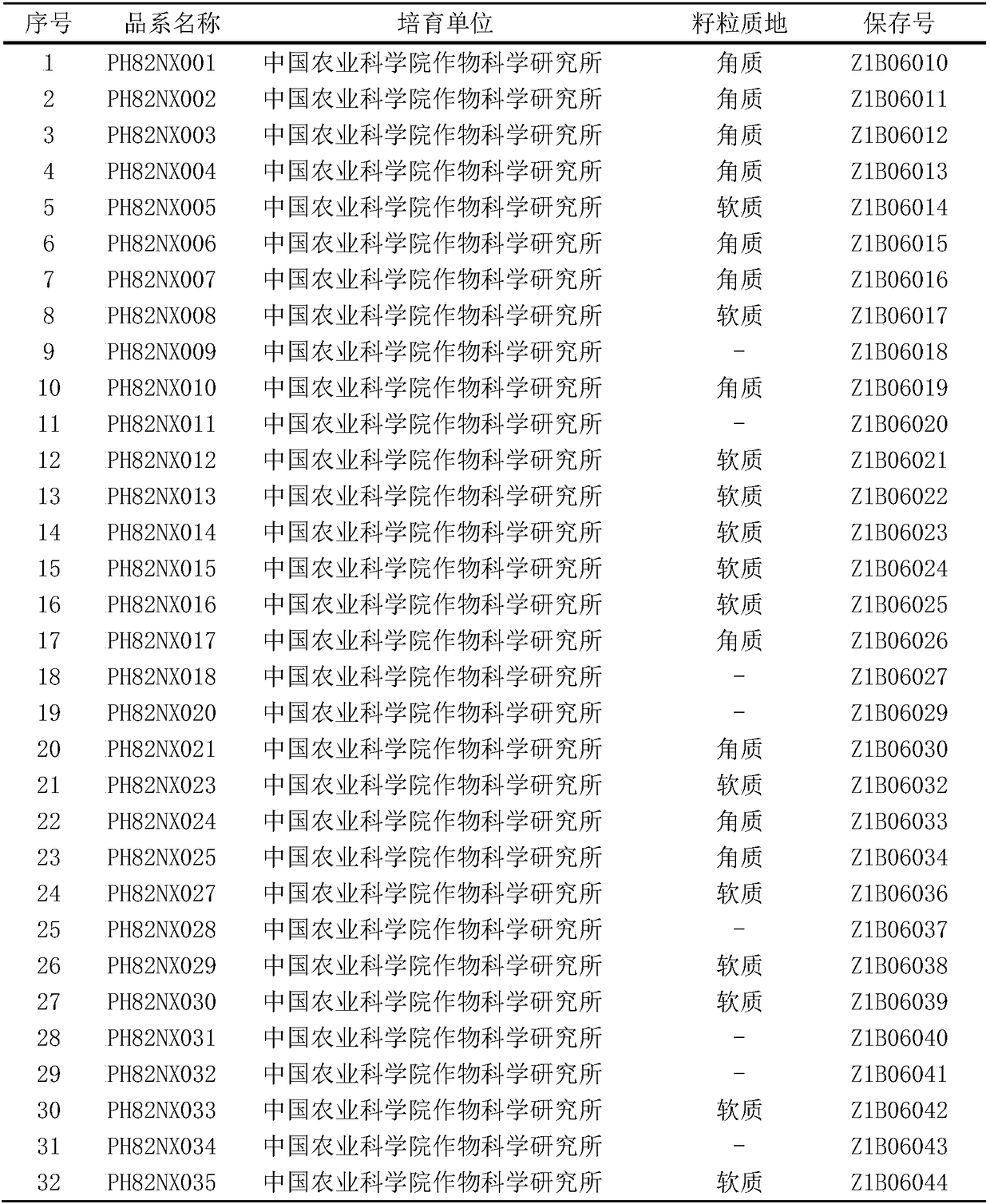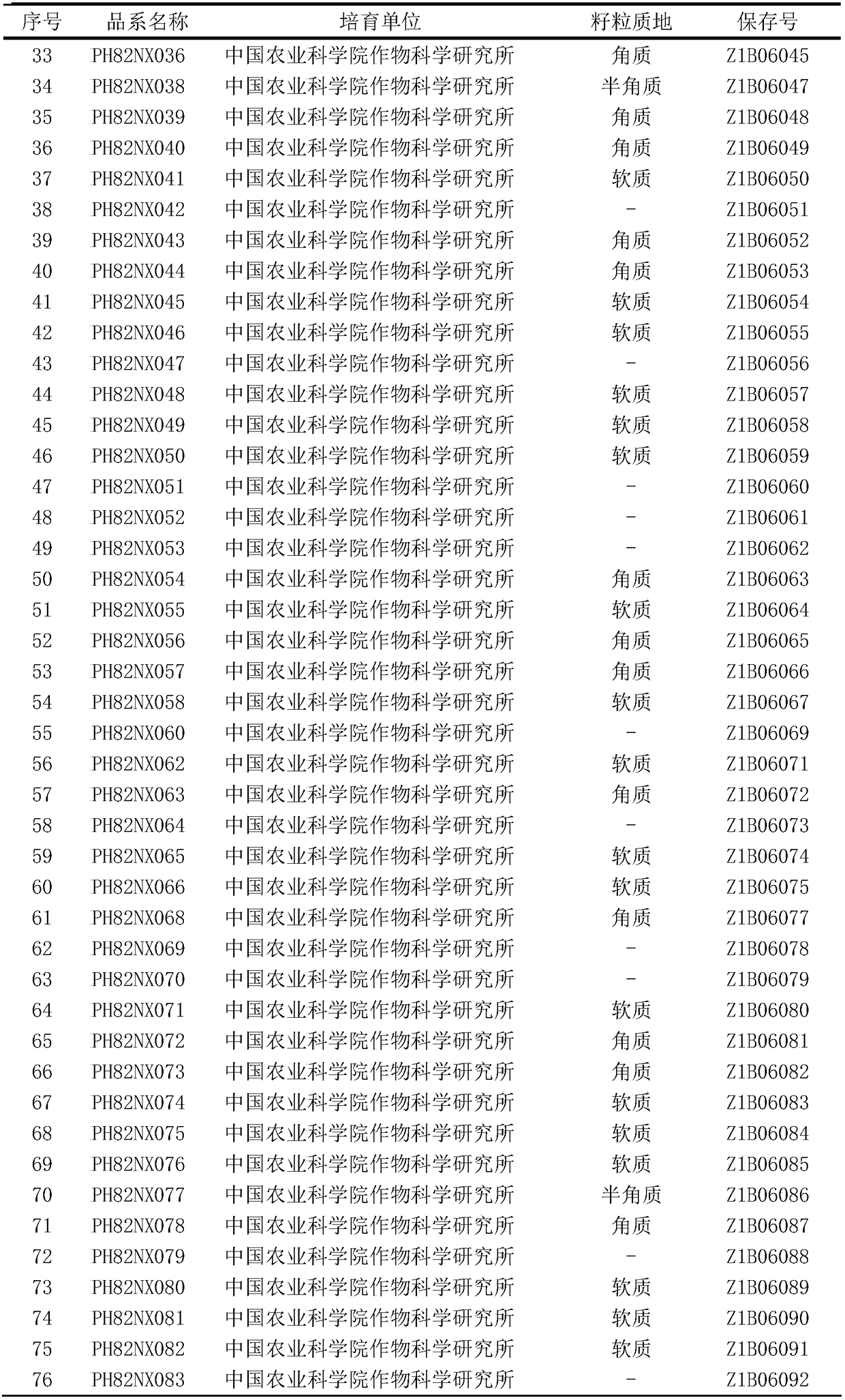Detecting method for wheat grain hardness
A detection method and technology for wheat grains, which are applied in measurement devices, preparation of test samples, and color/spectral property measurement, etc. The effect of rapid screening and detection of large-scale breeding offspring, low equipment purchase cost, and shortened time
- Summary
- Abstract
- Description
- Claims
- Application Information
AI Technical Summary
Problems solved by technology
Method used
Image
Examples
Embodiment Construction
[0022] The invention relates to a method for detecting the hardness of wheat grains, which includes dampening wheat flour, collecting the color difference value of the flour emitted from a calibration set sample, detecting the grain hardness of the calibration set sample, establishing a regression calibration model, and collecting and predicting the reflection of the sample flour The light color difference value and the final hardness prediction calculation, the specific operation process is described in detail through specific examples. In the specific examples, the test materials used, unless otherwise specified, are purchased from Shanghai Shenggong Bioengineering Technology Co., Ltd. The infrared analyzer was purchased from the Danish Flowserve Analytical Instrument Company, and the Konica Minolta Color Difference Meter CR-400 was purchased from Shanghai Tuxin Electronic Technology Co., Ltd. The Junior small test mill was purchased from Beijing Guanyuan Technology Co., Ltd.,...
PUM
 Login to View More
Login to View More Abstract
Description
Claims
Application Information
 Login to View More
Login to View More - R&D Engineer
- R&D Manager
- IP Professional
- Industry Leading Data Capabilities
- Powerful AI technology
- Patent DNA Extraction
Browse by: Latest US Patents, China's latest patents, Technical Efficacy Thesaurus, Application Domain, Technology Topic, Popular Technical Reports.
© 2024 PatSnap. All rights reserved.Legal|Privacy policy|Modern Slavery Act Transparency Statement|Sitemap|About US| Contact US: help@patsnap.com










